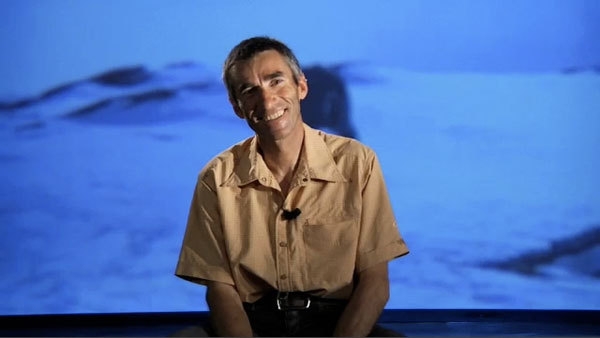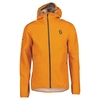An instant, and everything changes
For the first time since the accident, Xenia Minder talks to Le Temps about her drama after falling in the mountains and dragging down her life partner, Erhard Loretan.

 1 / 2
1 / 2
Erhard Loretan in the WebTv studio of the Trento FilmFestival (planetmountain.com)
 Planetmountain.com
Planetmountain.com
On 28 April Erhard Loretan, on the most successful alpinists and Himalayan mountaineers of all times, lost his life in a fall in the mountains. At the time one wrote that, on the Grünhorn horn, Loretan was "working" as a Mountain Guide: he was tied to a "client" who, after the accident, had been airlifted in serious condition to hospital. In truth the climbing partner was Xenia Minder, his partner in life. Now, for the first time, Xenia talks about the dramatic accident and above all how she is coming to terms with it in a beautiful article published in Le Temps. Hers is a profound reflection, emotional, sincere and dense with questions. A must-read!
AN INSTANT, AND EVERYTHING CHANGES by Xenia Minder
Almost six months ago I fell more than 200m and dragged down with me Erhard Loretan, the man I loved and also one of one of the most talented alpinists in the world. On that day the rope, that ever-present companion during our numerous ascents, proved fatally trustworthy, pulling him down behind me and leaving him lifeless at my side.
The death of Erhard, a tragedy for Switzerland which witnessed him come to life, grow up and live, was even more striking because it happened on his 52nd birthday. Many questioned how a man like him, the third person ever to have climbed the 14 highest mountains in the world without supplementary oxygen, could die while climbing a far less challenging ascent, a modest ridge in the Alps, on the Gruenhorn in the Valais, together with a woman which the press - discreetly for once - described as being "a 38-year-old client from Bern, seriously injured and airlifted to hospital."
Erhard was a mountain purist. Always respectful and humble, his international reputation was founded on his fast, lightweight style at all altitudes. He applied this same logic to his job as mountain guide, explaining to his clients that he did not offer additional services such as comfort and assistance, but guidance only. In the mornings our ascents began with the traditional "Hi my love, you're in deep shit today" - immediately rendered sweet by his gentle smile - only to finish more often than not with marvellous, frozen and starry bivvies and as a reward, after a meagre dinner after 12 hours on the trot, a delicious Choquito...
No one has blamed me for the death of Erhard. But ever since he passed away I have been submersed by an absolute void coupled with a sense of guilt.
A decade ago Erhard also made headline news, once again for tragic reasons. On 23 December 2011 left alone in his chalet at Crésuz, in Gruyère, with his seven month old child, he shook him, briefly, to stop him crying. The baby died. Erhard was sentenced to four months suspended sentence for negligent manslaughter.
In the light of his son's death, Erhard confronted the loss of his son with courage and dignity. At that time Shaken baby syndrome (SBS) was largely unknown, but he decided to disclose his name to the press in the hope that other parents might avoid a similar drama.
As he explained to me on various occasions, Erhard felt relieved for having been condemned by human justice even if - according to his own words on the day of the trial - the sentence was nothing compared to his suffering right to the end of his life.
However, during and after the trial Erhard became the target for violent public attacks. How could a man who had come head-to-head with death so often during his incredible ascents so easily lose his nerves of steel with his own, innocent and defenceless flesh and blood?
His broken heart never recovered from this loss and in the light of the media hounding, Erhard changed. He had obviously already lost many close friends in the mountains. But as I witnessed during our two years of happiness, the loss of his own son was a tragedy from which he never recovered, even if he had now begun to imagine life once again, with me, with all projects possible.
Erhard never wanted the death of his son, just as I had hoped never to have him dead.
Would our accident have been viewed differently had not I been the one to drag Erhard down in my fall? Or, had he survived, would he once again have become the target of a media offensive? Would public opinion have accused him of negligently killing his far less-experienced partner on those mountains he knew so well?
In short, what makes people judge so differently facts that bear so much resemblance?
The more people repeated that mine had been a miracle, the more my frustration grew in having to take on the role of the heroine who had survived, rather than a distracted alpinist, whose carelessness caused a tragedy.
This is the reason why three weeks after the accident I spoke to the prosecutor in charge of the case to find out whether I would be questioned as a "person informed of the facts", according to the terminology applied in the new penal code. He explained that the case was closed and that it would soon be closed. In his dossier sent to me on my request I discovered, among the statements of the mountain guides and medics who were at the scene of the accident, about the existence of a single testimony, mine: a report, comprised of numerous pages, compiled the morning after the accident by a police officer which I cannot recall in the slightest. I was in a state of shock and certainly heavily drugged. But the shaky signature at the end of each page is definitely mine...
Surprisingly, the content of that statement corresponds to my confused recollection of the accident and therefore with what I could have stated. After having taken off our skies and begun ascending the ridge which would have taken us to the summit, my left foot slipped, making me fall onto the slope. I have images of falling backwards, of the rope uncoiling, the steps of rock and ice, a prayer to not suffer too much before dying.
No one ever questioned the accuracy this account or even whether it was conceivable that I could remember something, after a 200m fall and seven hours on the snow waiting, unconscious and in a severe state of hypothermia, for the mountain rescue.
Both my closest friends and colleagues attributed my deep indignation of the fact that the case had been closed to my state of shock.
Legally, my rebellion was quickly muffled. A judge by profession, I had to admit that the verdict - it having been an accident - was unquestionable seeing that Erhard, given his experience, was by definition the guarantor of my safe-being. So protesting against the fact that he was automatically considered my guide was completely useless, without anyone having checked whether our relationship had been backed up by a contractual relationship, which is a necessary prerequisite in recognising that someone acts as a guide.
On a personal level though my incomprehension persisted, and continues to persist, at times fuelling that of others who, unanimously, justify the accident using the concepts of "destiny", "fatality", "you're time hadn't come"...
So why all this discomfort?
Sense of guilt for having survived? Yes, definitely, but sense of guilt above all because Erhard was never granted such a lenient treatment when he lost his son. Perhaps this was due to his fame. In fact, as soon as the news of his actions and its dramatic consequence filtered, some media, and with them a part of public opinion, held him responsible for the death and completely ignored the pain of a father.
As I write these sentences, L’Illustré has put forward the candidate "Ehrard (sic) Loretan" in its bid to find the "the Romand of the century"t, juxtaposing his Himalayan prowess with his personal drama. Which begs the question as to which of the two facts he should be elected on? And in fact, beneath his photo in the magazine you can read: "Protagonist of climbs without supplementary oxygen of the highest mountains in the world, he was universally admired until that evening in 2003 (sic!) when, exhausted by the incessant crying of his son, he committed the irreparable act of shaking his baby too hard."
I myself had heard people referring to Erhard as "he who killed his son" and wasn't in the slightest surprised when, during our first climb together, he announced that he avoided two categories of people: lawyers and journalists. I told him that he our meeting wasn't his lucky day since I was a judge and my brother was a journalist...
Erhard's mistrust wasn't only connected to his personal experience. It was also rooted in the rise of law suits connected to accidents in the mountains which were the result, he believed, of a society technologically advanced and eager to take risks, but incapable of assuming them.
Erhard criticised the risks taken by expert alpinists as a result of beginners who moved alone in a world they simply did not know. Likewise, he criticised the absolute lack of responsibility clients had with regard to their guides. He noted that in many trials the only fault guides had were to have risked their own lives in guiding clients on outings which proved tragic because of their fatal outcome. Like ours...
His reaction was undeniable emotional, intrinsically linked to his job as mountain guide. While I, as a judge, cannot blame law being applied. But having lost the man I love in such terrible circumstances on 28 April 2011, my conscience has been shaken. In particular in noting that the boundary between guilt and innocence, regardless of a judicial verdict, can at times be separated by nothing more than a hair's breadth. A simple gesture of something too much in Erhard's case. Or a thin layer of ice, on which I lost my balance on that tragic day.
by Xenia Minder
Thanks to Xenia Minder and Le Temps.
(On 21 October 2011 the program “Passe-moi les jumelles” (Hand me the binoculars) on TSR1 will be dedicated to Erhard Loretan. It will exceptionally last 1 hour and include testimonies from of those who knew him.)
AN INSTANT, AND EVERYTHING CHANGES by Xenia Minder
Almost six months ago I fell more than 200m and dragged down with me Erhard Loretan, the man I loved and also one of one of the most talented alpinists in the world. On that day the rope, that ever-present companion during our numerous ascents, proved fatally trustworthy, pulling him down behind me and leaving him lifeless at my side.
The death of Erhard, a tragedy for Switzerland which witnessed him come to life, grow up and live, was even more striking because it happened on his 52nd birthday. Many questioned how a man like him, the third person ever to have climbed the 14 highest mountains in the world without supplementary oxygen, could die while climbing a far less challenging ascent, a modest ridge in the Alps, on the Gruenhorn in the Valais, together with a woman which the press - discreetly for once - described as being "a 38-year-old client from Bern, seriously injured and airlifted to hospital."
Erhard was a mountain purist. Always respectful and humble, his international reputation was founded on his fast, lightweight style at all altitudes. He applied this same logic to his job as mountain guide, explaining to his clients that he did not offer additional services such as comfort and assistance, but guidance only. In the mornings our ascents began with the traditional "Hi my love, you're in deep shit today" - immediately rendered sweet by his gentle smile - only to finish more often than not with marvellous, frozen and starry bivvies and as a reward, after a meagre dinner after 12 hours on the trot, a delicious Choquito...
No one has blamed me for the death of Erhard. But ever since he passed away I have been submersed by an absolute void coupled with a sense of guilt.
A decade ago Erhard also made headline news, once again for tragic reasons. On 23 December 2011 left alone in his chalet at Crésuz, in Gruyère, with his seven month old child, he shook him, briefly, to stop him crying. The baby died. Erhard was sentenced to four months suspended sentence for negligent manslaughter.
In the light of his son's death, Erhard confronted the loss of his son with courage and dignity. At that time Shaken baby syndrome (SBS) was largely unknown, but he decided to disclose his name to the press in the hope that other parents might avoid a similar drama.
As he explained to me on various occasions, Erhard felt relieved for having been condemned by human justice even if - according to his own words on the day of the trial - the sentence was nothing compared to his suffering right to the end of his life.
However, during and after the trial Erhard became the target for violent public attacks. How could a man who had come head-to-head with death so often during his incredible ascents so easily lose his nerves of steel with his own, innocent and defenceless flesh and blood?
His broken heart never recovered from this loss and in the light of the media hounding, Erhard changed. He had obviously already lost many close friends in the mountains. But as I witnessed during our two years of happiness, the loss of his own son was a tragedy from which he never recovered, even if he had now begun to imagine life once again, with me, with all projects possible.
Erhard never wanted the death of his son, just as I had hoped never to have him dead.
Would our accident have been viewed differently had not I been the one to drag Erhard down in my fall? Or, had he survived, would he once again have become the target of a media offensive? Would public opinion have accused him of negligently killing his far less-experienced partner on those mountains he knew so well?
In short, what makes people judge so differently facts that bear so much resemblance?
The more people repeated that mine had been a miracle, the more my frustration grew in having to take on the role of the heroine who had survived, rather than a distracted alpinist, whose carelessness caused a tragedy.
This is the reason why three weeks after the accident I spoke to the prosecutor in charge of the case to find out whether I would be questioned as a "person informed of the facts", according to the terminology applied in the new penal code. He explained that the case was closed and that it would soon be closed. In his dossier sent to me on my request I discovered, among the statements of the mountain guides and medics who were at the scene of the accident, about the existence of a single testimony, mine: a report, comprised of numerous pages, compiled the morning after the accident by a police officer which I cannot recall in the slightest. I was in a state of shock and certainly heavily drugged. But the shaky signature at the end of each page is definitely mine...
Surprisingly, the content of that statement corresponds to my confused recollection of the accident and therefore with what I could have stated. After having taken off our skies and begun ascending the ridge which would have taken us to the summit, my left foot slipped, making me fall onto the slope. I have images of falling backwards, of the rope uncoiling, the steps of rock and ice, a prayer to not suffer too much before dying.
No one ever questioned the accuracy this account or even whether it was conceivable that I could remember something, after a 200m fall and seven hours on the snow waiting, unconscious and in a severe state of hypothermia, for the mountain rescue.
Both my closest friends and colleagues attributed my deep indignation of the fact that the case had been closed to my state of shock.
Legally, my rebellion was quickly muffled. A judge by profession, I had to admit that the verdict - it having been an accident - was unquestionable seeing that Erhard, given his experience, was by definition the guarantor of my safe-being. So protesting against the fact that he was automatically considered my guide was completely useless, without anyone having checked whether our relationship had been backed up by a contractual relationship, which is a necessary prerequisite in recognising that someone acts as a guide.
On a personal level though my incomprehension persisted, and continues to persist, at times fuelling that of others who, unanimously, justify the accident using the concepts of "destiny", "fatality", "you're time hadn't come"...
So why all this discomfort?
Sense of guilt for having survived? Yes, definitely, but sense of guilt above all because Erhard was never granted such a lenient treatment when he lost his son. Perhaps this was due to his fame. In fact, as soon as the news of his actions and its dramatic consequence filtered, some media, and with them a part of public opinion, held him responsible for the death and completely ignored the pain of a father.
As I write these sentences, L’Illustré has put forward the candidate "Ehrard (sic) Loretan" in its bid to find the "the Romand of the century"t, juxtaposing his Himalayan prowess with his personal drama. Which begs the question as to which of the two facts he should be elected on? And in fact, beneath his photo in the magazine you can read: "Protagonist of climbs without supplementary oxygen of the highest mountains in the world, he was universally admired until that evening in 2003 (sic!) when, exhausted by the incessant crying of his son, he committed the irreparable act of shaking his baby too hard."
I myself had heard people referring to Erhard as "he who killed his son" and wasn't in the slightest surprised when, during our first climb together, he announced that he avoided two categories of people: lawyers and journalists. I told him that he our meeting wasn't his lucky day since I was a judge and my brother was a journalist...
Erhard's mistrust wasn't only connected to his personal experience. It was also rooted in the rise of law suits connected to accidents in the mountains which were the result, he believed, of a society technologically advanced and eager to take risks, but incapable of assuming them.
Erhard criticised the risks taken by expert alpinists as a result of beginners who moved alone in a world they simply did not know. Likewise, he criticised the absolute lack of responsibility clients had with regard to their guides. He noted that in many trials the only fault guides had were to have risked their own lives in guiding clients on outings which proved tragic because of their fatal outcome. Like ours...
His reaction was undeniable emotional, intrinsically linked to his job as mountain guide. While I, as a judge, cannot blame law being applied. But having lost the man I love in such terrible circumstances on 28 April 2011, my conscience has been shaken. In particular in noting that the boundary between guilt and innocence, regardless of a judicial verdict, can at times be separated by nothing more than a hair's breadth. A simple gesture of something too much in Erhard's case. Or a thin layer of ice, on which I lost my balance on that tragic day.
by Xenia Minder
Thanks to Xenia Minder and Le Temps.
(On 21 October 2011 the program “Passe-moi les jumelles” (Hand me the binoculars) on TSR1 will be dedicated to Erhard Loretan. It will exceptionally last 1 hour and include testimonies from of those who knew him.)
Note:
| Planetmountain | |
| News Erhard Loretan | |
| www | |
| Le Temps | |
Latest news
Expo / News
Expo / Products
Waterproof thanks to HDry technology and crampon-compatible, the Dynafit WP Elevation is the lightest mountaineering shoe on the market.
Crash pad for bouldering and climbing
Special “helical” connector with twisted body with circular section made in aluminum alloy.
Leather approach shoes designed to guarantee maximum stability and grip even on the roughest terrain.
Minimalist, lightweight jacket
An ultralight two-person tent for trekking and biking.



 Copia link
Copia link























